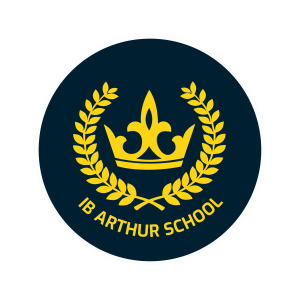Curriculum
The Upper Primary School is for 8 – 11 year olds (i.e. Year 3 – Year 6). IB Arthur School is authorised for Cambridge Primary Education. The curriculum is recognised globally and it provides connectivity from kindergarten to primary. The curriculum also promotes experiential and inquiry-based activities and provides learners with the academic skills needed to become independent learners. Using the Cambridge curriculum allows for continuous assessments to monitor learners’ development.
We assess our learners through class tests, mid-term assessments and end-of-term exams. Teachers meet with parents to review learners’ progress twice in a term (i.e., mid-term and end of the term). The year 6 learners write Cambridge International checkpoint to assess their level of preparedness for lower secondary school. A learner needs to achieve an average GPA of 3.0 for Math, English and Science to progress to grade 7.
The maximum class size is 18. We believe that keeping small class sizes allows our teachers to truly understand how each student learns best.
English
It focuses on reading and writing in various genres, strengthening vocabulary, and producing creative writers. In addition, each unit will have discussions, debates, and presentations to improve output and communication skills.
Math
It combines many hands-on and interactive activities. We teach children the process behind math skills, not just the skills themselves. Children with advanced mathematics are provided with level-appropriate challenges and opportunities to progress further.
Science
At IB Arthur School, we take the scientific process very seriously and encourage our learners to develop the habit of being logical, experimenting and studying. The curriculum covers all fundamental disciplines, including biology, chemistry and physics.
Arts and Design
Using various forms of media, students develop self-expression and imagination through science, social, and seasonal crafts and activities.
Programming and Robotics
Robotic and programming lessons provide the basis for project-based learning to research and engineer solutions to real-world problems. The programme is tied to other subjects being explored at the same time.
Digital Literacy
Learners are introduced to Microsoft Office tools, sharpen their keyboard skills with online resources in ICT, and improve their programming skills using Scratch and Python. We aim to improve problem-solving, information analysis, creativity, and presentation skills.
Physical Education and Sports (PES)
Professional instructors are in charge of PE and Sports classes. In PE, children learn different forms of movement. The focus is on learning and developing the principles of physical movements, such as the body's underlying sense of balance, body awareness, coordination, and alignment. These principles are studied and expressed using a variety of disciplines including football, swimming, sprinting, and more.
Music
Music classes cover many areas including composition, theory, production, instrumental playing and singing. We teach children how music can touch people and make them fun to listen to and play. In class, students will try playing in a band and convey the joy of playing music with their friends.
Global perspective
We aim to foster global-minded leaders and to increase Learners’ curiosity not only in their local communities but also in the world. The curriculum begins with children learning about themselves and gradually exploring the world and its history.
French as a second language
French is taught as a second language. The lessons are bursting with fun and colourful activities. French is a good grounding for learning other languages, especially Spanish, Italian, Portuguese and Romanian and even English since over half of modern-day English vocabulary is derived from French.
